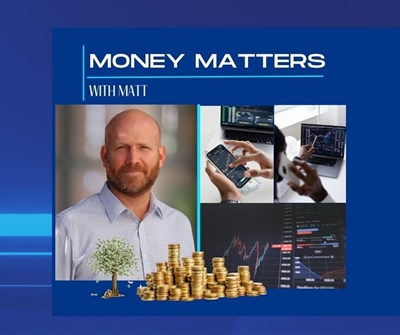US markets have been breaking records this year. By October, the S&P 500 had made more than two dozen new all-time highs, and the Nasdaq isn’t far behind. Closer to home, the JSE All Share Index is also trading near record levels, up just over 30 % over the past year.
Whenever that happens, the same question comes up: Is now the time to take some money off the table?
It’s a fair question. A client messaged me recently asking exactly that, and I’ve been seeing the same headline everywhere: “Markets are at all-time highs … should investors be worried?”
Highs are normal
A record high can sound alarming, but it’s actually the natural outcome of progress. If markets didn’t keep reaching new highs, investors wouldn’t earn long-term returns.
Last year the S&P 500 made 57 new highs; this year it’s already made 28. Over the past century, markets have spent roughly one-third of all trading days at record levels. That’s not a warning — that’s compounding doing its job.
Valuations deserve perspective
Yes, valuations are elevated. In the US, the Shiller CAPE ratio is close to 40 — levels last seen during the dot-com era. But valuation measures are poor short-term indicators. They can stay high for long stretches because markets are forward-looking: they price in expectations, not just current earnings.
Corporate results remain strong, profit margins healthy, and balance sheets robust. Optimism around technology and interest-rate cuts adds fuel to the story. Whether that fully justifies prices is open to debate, but it explains why investors are willing to pay up.
The pull of cash
When markets feel expensive, the instinct to “wait for a dip” is powerful. The problem is that it almost never works.
To make it successful, you’d need to be right twice — once when you sell, and again when you buy back in. That second decision is the harder one. When prices fall 10 %, investors often wait for 20 %. When they fall 20 %, they expect 30 %. Few ever re-enter at the right time.
Meanwhile, earnings continue to grow, dividends reinvest, and the compounding you were counting on keeps working without you. Sitting in cash feels safe but comes at a hidden cost: missed participation.
A better question
Rather than asking whether to sell, ask whether your portfolio still matches your goals.
- Do you need the money in the next 1–3 years? If yes, keep it in cash or short-term bonds.
- Has your portfolio drifted from its target asset mix? If yes, rebalance.
- Are you reacting to headlines or following your plan?
All-time highs and uncertainty often appear together. That’s normal.
Final thought
Markets — both global and local — will always hand us reasons to hesitate. But investing isn’t about predicting the next pullback; it’s about staying invested for the next decade of growth.
Valuations warrant respect, but patience and discipline deserve more.
Your edge isn’t in predicting. It’s in persevering — keeping your process stronger than your emotions.
Matthew Matthee has a wealth management business that specialises in retirement planning and investments. He writes about financial markets, investments, and investor psychology. He holds a Masters Degree in Economics from Stellenbosch University and a Post Graduate Diploma in Financial Planning from UFS. MatthewM@gravitonwm.com
‘We bring you the latest Garden Route, Hessequa, Karoo news’
















